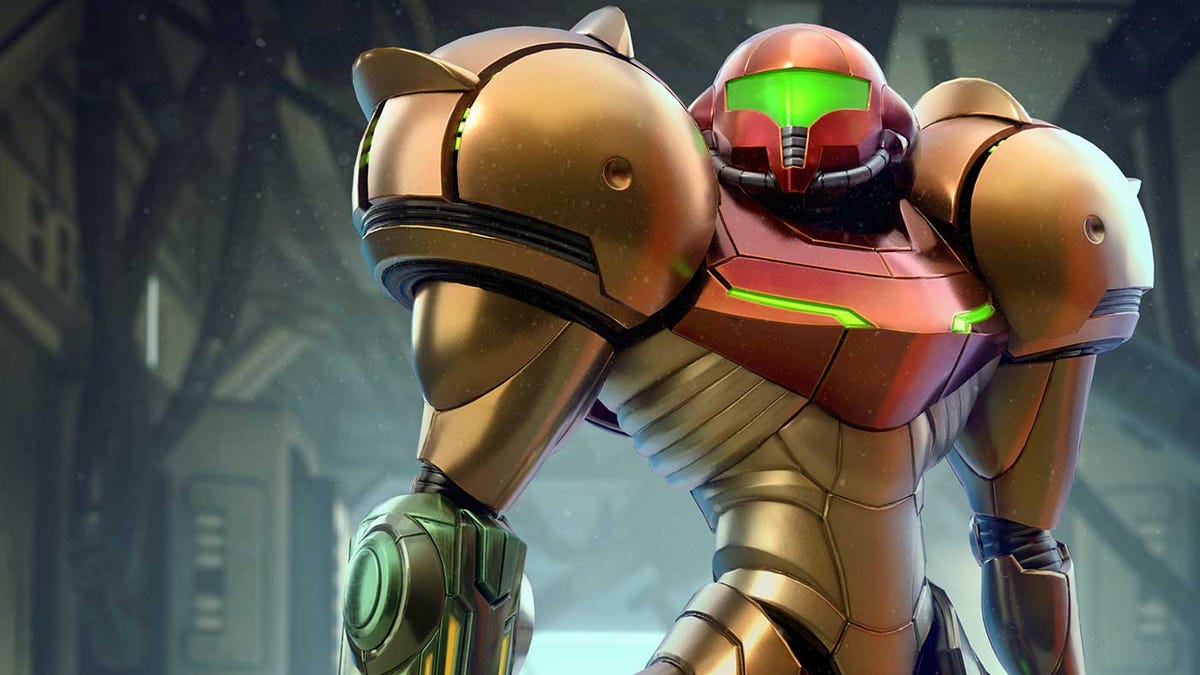
I am an old man. 41 years old to be precise.
But I’m trying to preserve a youthful vibe, to stay connected to the new, fighting hard against the dying of the light – the brain death of interacting solely with the cultural pillars of your mispent youth.
Instead, I’ve become an embarrassment in the opposite direction. I’ve gone “hello fellow kids”. I’m not a regular dad, I’m a cool dad. Backwards baseball cap, desperately staying alive to current trends. Joining TikTok, avoiding cringe emoji use, fighting the good fight against the cheug.
When it comes to video games, it’s easy to stay on trend. As art tethered to cutting edge technology, video games are far more likely to get updates in the form of sequels and spin offs. While it’s easy to imagine dads in their 40s tuning into classic rock radio to hear the hits of yesteryear, it’s impossible to imagine solely playing Pong, Pac-Man or other games from the same era.
A remake of Resident Evil 4 dazzled fans this year.
I grew up in the 90s, with Oasis, Blur and Pulp as music reference points – and I still look them up on Spotify – but I’m not regularly firing up the Super Nintendo to play Super Mario World.
No – I’m usually playing whatever’s new like a normal person, whether that’s Elden Ring or Signalis or whatever. Because, thanks to tech, new video games are almost always more appealing than old video games.
Well, sort of.
Because let’s face facts: 2023 has been a weird year for video games. In the last 3 months, the best video games have been… old.
We had the Dead Space Remake, a brilliantly executed from-the-ground up retool of the classic sci-fi horror title, first released back in 2008. Capcom recently dropped Resident Evil 4 – a remake of one of the most influential video games of the last 20 years. That’s been getting perfect scores across the board. People are losing their minds.
But personally, after Nintendo released a remastered edition in mid-February this year, I’ve been playing Metroid Prime.
Metroid Prime is old. Metroid Prime can legally drink in bars.
It’s a game that felt air-dropped from the future upon its GameCube release way back in 2002. Like someone opened a gap in the space time continuum and handed us this glowing, otherworldly artifact before the portal closed.
But somehow, in 2023, Metroid Prime feels even stranger. The controls, the aesthetics of the game’s intricately designed universe, the shape shifting way the game is constantly reinterpreting its own spaces with bewildering, awe-inspiring mechanics – Metroid Prime felt like an anomaly 20 years ago, but time has only made it more special. In the years since its release, nothing has come close to replicating it.
If anything, Metroid Prime is a reminder of just how stagnant big budget video games have become in its wake. Sure, we’ve seen big swings – Breath of the Wild successfully reinvented the open world game. From Software, via games like Dark Souls and Elden Ring, practically invented a new genre. But, outside of the indie space, most big budget titles have played it extremely safe over the last decade.
In a world where most AAA games have you collecting loot to craft new gear and meander through meaningless skill trees, playing Metroid Prime feels like stepping into a different universe. Turns out video games with a unique identity are a good thing. Replaying Metroid Prime in 2023 was like an electric shock, reminding me that games aren’t supposed to tick boxes or sit in a comfort zone. They’re supposed to make your synapses fire in directions you couldn’t even imagine beforehand.
Ragnarok is beautifully made, but fell flat for me.
I thought about this when playing God of War: Ragnarok immediately afterwards. As a multi award-winning, critically acclaimed video game, I was shook by how quickly Ragnarok put me in auto pilot. This beautiful game – made by hundreds of talented developers at the peak of their collective powers – lulled me to sleep within hours. It felt so familiar, not just because it was a sequel, but because it moved and played like a sophisticated version of games I’d been endlessly playing over the last four or five years.
In some ways it’s an unfair comparison. Metroid Prime wasn’t remastered by accident. It was remastered because it was an epoch defining video game we remember fondly decades after its release. Even a game like Ragnarok, loved as it is by millions of players, is unlikely to have the same long-term impact as Metroid Prime. Despite winning a few game of the year awards, it’s hard to imagine audiences clamoring for a remake of Ragnarok 20 years down the track.
But what struck me about Metroid Prime is how little it had changed and – conversely – how little had to change to make it palatable for folks who weren’t even born when this game was first released. There were visual upgrades, sure, but for the most part Metroid Prime Remastered was the same video game I played on the GameCube in my early 20s. Not once does Metroid Prime betray its age, on the contrary it still feels cutting edge.
Why is that?
Maybe because Metroid Prime was so unique in the first place? Maybe because nothing – not a single game – has tried to pull off the same magic trick. Possibly. But it’s also a stark reminder that – for a number of factors – big video games feel far more risk averse than they did even a decade or so ago. The stakes (and budgets) are too high. It’s hard to imagine a big budget title taking those types of risks.
They don’t make ’em like they used to.
